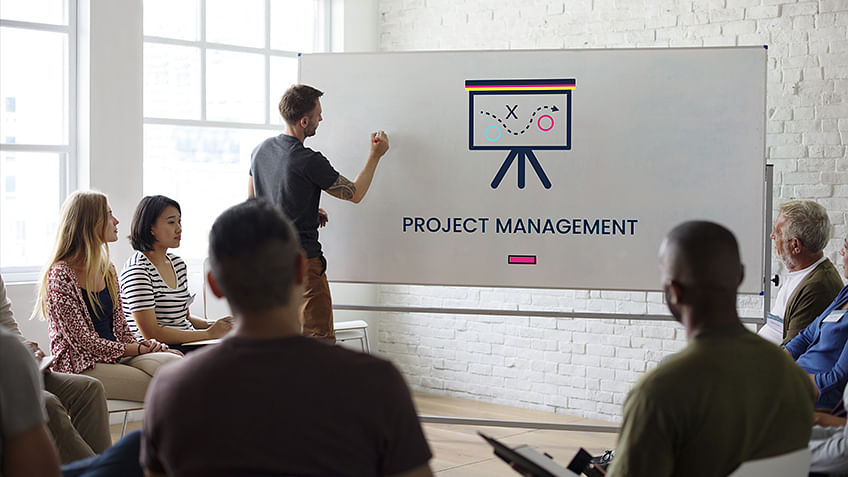Innovation is the creation of new knowledge. In PMI's the 5th edition of the Project Management Body of Knowledge (PMBOK), this creation of knowledge and its harvesting occurred as an output of many processes across the Project Management Framework–“Organizational Process Asset Updates.” In the PMBOK 6th edition, a new process centralizes this activity and gives it greater focus–“Manage Project Knowledge.” The fact that this process gets implemented in integration management infers it is the project manager’s job to ensure information is getting captured. The fact that this process is in the Executing Process Group assumes that this knowledge gets collected in and around the work of creating the deliverable.
The Lessons Learned Register
Manage Project Knowledge creates a new project document: the Lessons Learned register. This register is a document that allows to capture and update ongoing lessons learned. This document is generally created within the Manage Project Knowledge but can be updated by many other processes (as a project document update). Updating an Organizational Process Asset (OPA) is the update of a process and procedure, which can be a result of learning new knowledge as well–inside or outside this process. What can confuse one is the fact that the definition of OPA includes the organization’s lessons learned.
Simply put, one adds lessons learned from previous projects to the current knowledge base. And then he uses the existing knowledge base to generate the OPAs used on further projects. Therefore, the 5th edition of capturing lessons learned–OPA updates–and the current version–this new process–are integrated. We see both these methods side by side in the 6th Edition.
New Techniques for Manage Project Knowledge
The artifacts of Manage Project Knowledge include two new techniques:
- Knowledge Management, which connects people to people to create knowledge, and
- Information Management, which connects people directly to information to create new knowledge.
Knowledge Management may use meetings, training, and other organization of people. Information Management includes knowledge repositories (including the Project Management Information System) and other such document organization tools. These techniques ensure the Project manager can create knowledge by connecting people to people and people to ideas–and does this actively and consciously.
Different Types of Knowledge
Explicit Knowledge is what we can write down and communicate efficiently. Think about checklists, instructions, and such. These lists of knowledge are easy to validate, as well. We can go back to the guidelines and confirm that our staff or we are performing the steps as planned or as documented.
Tacit knowledge, however, is not so measurable, quantifiable, and shareable. Think about riding a bike. Is bike riding merely pushing a bike forward, maintaining balance? No. It includes making multiple sideways adjustments in the balance as you move forward. Overcompensating until you start falling, and then you move your balance otherwise to recapture your balance; all as you continue to move forward. Bike riding is more complicated than this. Many of us don’t look at instructions for bike riding, but merely ‘work out the details’ and never truly understand how this all works. It just works.
The problem with Tacit knowledge is it is ‘good’ information and information that is not normally captured. It’s where the wisdom exists, and effort must be applied to convert into explicit knowledge.
| Enroll in our PMP Certification Course today and develop a strong foundation in the principles of project management. |
Capturing Knowledge is Part of How We Work
This new Knowledge Management process is the next step in confirming we obtain and archive lessons learned continually through the life cycle. By creating a formal process, we are ensuring it is accessible to every project and every part of the life cycle and placing it into the hands of the project manager. The project manager ties everything together – they integrate. These Integration processes are not delegated, and therefore, capturing project knowledge has the attention and ownership it rightly deserves.
If you’re preparing for the PMP exam, consider the PMP Certification Training from Simplilearn. Simplilearn offers a wide variety of Project Management courses that equip learners with the knowledge and discipline required to effectively plan, manage, execute, and control projects regardless of industry.
PMBOK®, PMP® and PMI® are registered trademarks of the Project Management Institute, Inc.


